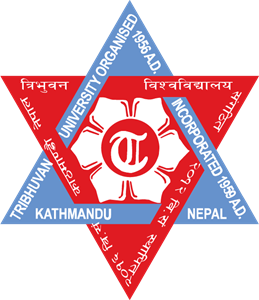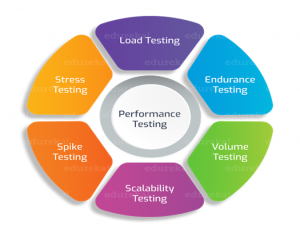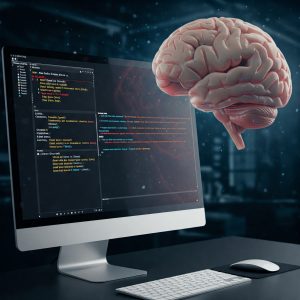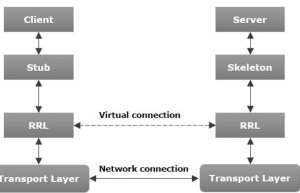

BCA First Semester TU Syllabus: A Comprehensive Overview
The BCA (Bachelor of Computer Applications) program at Tribhuvan University (TU) offers a diverse and challenging curriculum, especially in the first semester. The BCA First Semester TU Syllabus is designed to lay a solid foundation for students, introducing them to key concepts in computer science, mathematics, and communication. As technology continues to evolve, understanding the basics is crucial for future success in the field. In this blog post, we will provide a detailed overview of the essential subjects covered in the BCA First Semester TU Syllabus, including Computer Fundamentals, Society and Technology, English I, Mathematics I, and Digital Logic.
1. Computer Fundamentals: Understanding the Core of Computing
The Computer Fundamentals course in the BCA First Semester TU Syllabus is a foundational subject that introduces students to the essential components of computer systems. It covers a broad range of topics, including the history of computers, types of computer systems, and the various hardware and software components that make up a computer. Students learn about input/output devices, central processing units (CPUs), memory systems, and storage devices.
In addition to hardware, the course also delves into software basics such as system software and application software, along with an introduction to operating systems. The importance of understanding data representation, along with the basics of computer networks, is emphasized. This knowledge prepares students for more advanced topics in computing that will come in subsequent semesters.
2. Society and Technology: Exploring the Relationship Between Technology and Society
The Society and Technology course in the BCA First Semester TU Syllabus addresses the impact of technology on various aspects of human life. In this subject, students explore the ethical, social, and cultural implications of technology, particularly in the context of modern digital advancements. Topics such as privacy issues, technology’s role in economic and social development, and the influence of emerging technologies (like AI and robotics) on society are thoroughly discussed.
This course encourages students to critically analyze the influence of technology on contemporary society. Understanding these concepts is vital for students pursuing a career in technology, as it helps them make informed decisions about the technology they develop or work with in the future. It instills a sense of responsibility and ethics in students, preparing them for roles in industries that require not only technical skills but also an awareness of technology’s societal implications.
3. English I: Enhancing Communication Skills for Professional Success
In the English I course, which is part of the BCA First Semester TU Syllabus, students focus on improving their communication skills, both written and verbal. Effective communication is crucial in the professional world, and this subject helps students gain proficiency in technical writing, grammar, vocabulary, and the structure of professional documents.
The syllabus includes grammar topics like sentence structure, parts of speech, and the formation of coherent paragraphs. Additionally, students learn how to write formal work-related letters, reports, and emails—skills that are indispensable in the IT industry. Reading and listening exercises related to computing terminology and technology also help students improve their technical language skills, ensuring they are capable of understanding and communicating complex ideas effectively.
4. Mathematics I: Building the Mathematical Foundation for Computing
Mathematics plays a critical role in computer science, and the Mathematics I course in the BCA First Semester TU Syllabus introduces students to the mathematical principles needed to understand computer applications. Topics covered include set theory, real and complex numbers, relations and functions, and sequences and series. These topics are crucial for areas such as algorithm design, programming, and data structure analysis.
Students are also introduced to matrices and determinants, which have significant applications in computer graphics, machine learning, and data analysis. The course focuses on helping students build strong problem-solving skills, which are vital when working with complex computational problems. The foundation laid in Mathematics I enables students to tackle more advanced mathematical concepts in later semesters.
5. Digital Logic: Understanding the Fundamentals of Computer Systems
The Digital Logic course in the BCA First Semester TU Syllabus is a pivotal subject that provides students with a deep understanding of digital systems, logic gates, and Boolean algebra. This subject lays the groundwork for understanding how computers process data at the hardware level. The syllabus covers basic logic gates (AND, OR, NOT), as well as universal gates like NAND and NOR.
Additionally, students learn about combinational logic design, simplifying Boolean expressions using Karnaugh maps, and implementing circuits like adders, multiplexers, and decoders. The course also introduces sequential logic, covering flip-flops, counters, and registers, which are critical components in digital circuit design. By the end of this course, students gain hands-on experience with logic design, preparing them for more complex digital systems courses in later semesters.
Preparing for a Successful Career in Computing
The BCA First Semester TU Syllabus is meticulously designed to provide students with a comprehensive introduction to the world of computer science. With foundational courses in Computer Fundamentals, Society and Technology, English I, Mathematics I, and Digital Logic, students develop the essential skills required for advanced study in computer applications. The first semester ensures that students not only gain technical knowledge but also critical thinking and communication skills, preparing them for a successful career in the ever-evolving tech industry.
By the end of the first semester, students will have acquired a strong foundation in computer science principles, mathematical concepts, and professional communication, setting the stage for their success in future semesters and beyond. The BCA program at Tribhuvan University equips students with both the theoretical knowledge and practical skills necessary to excel in the field of computer applications.
Stay Connected
If you want to stay updated with useful tips, academic resources, and the latest news about your BCA journey, follow us on social media:
- Follow us on X: https://x.com/esikhcha
- Follow us on Facebook: https://www.facebook.com/share/164hV8SsH7/
By staying connected, you’ll have access to valuable insights and discussions that will help you succeed in your second semester and beyond.



